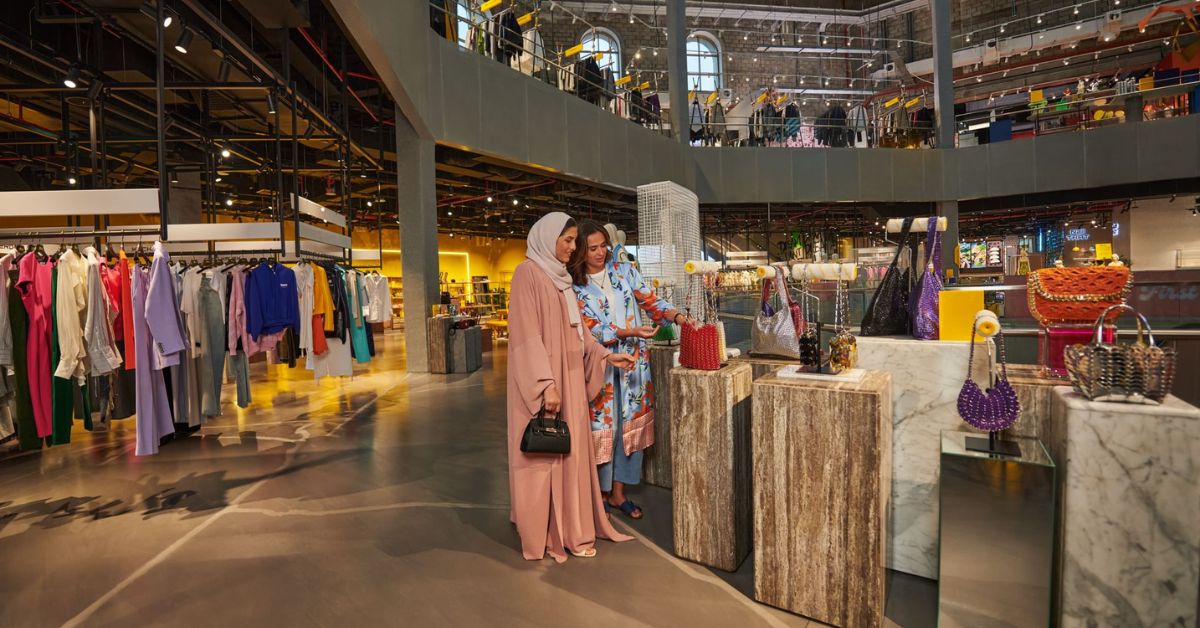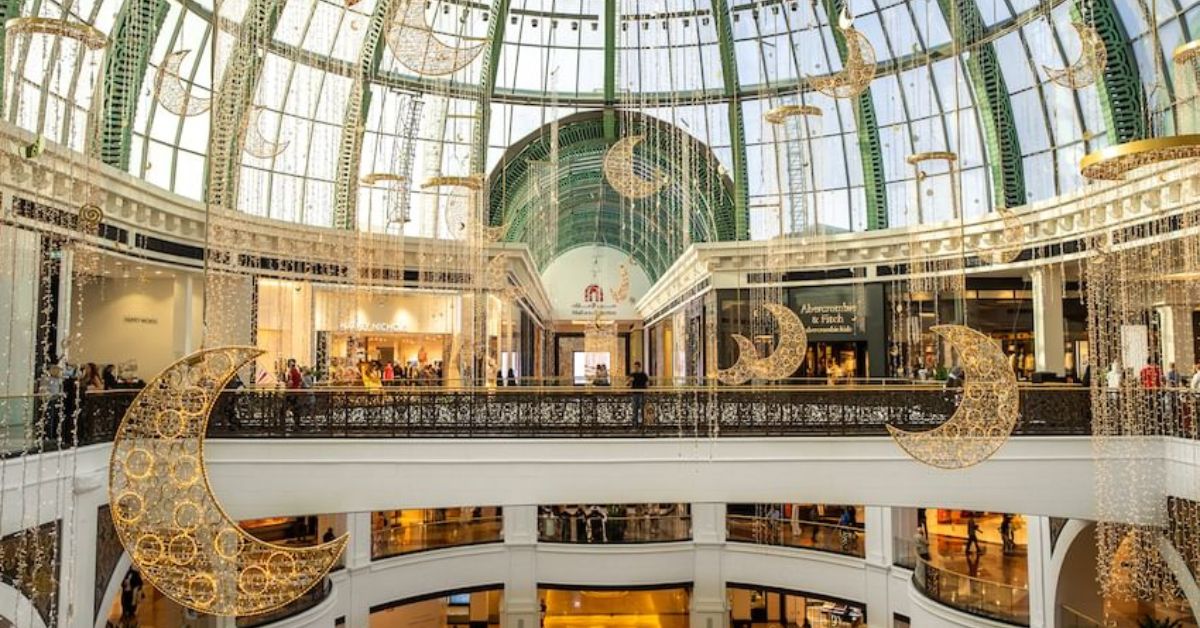DUBAI — Ramadan 2024 is already here, and the observance landscape in the GCC presents a captivating mix of ancient traditions and the ongoing embrace of technology. While foundational practices such as fasting and prayer remain at the heart of observance, digital tools are reshaping how Muslims connect, learn, and shop during this sacred month.
Smartphones and digital platforms have profoundly influenced the Ramadan experience. Informational apps offer accurate prayer times, directions to Makkah (Qibla), and useful reminders.
Social media fosters a sense of community, enabling individuals to share experiences, exchange greetings, and even partake in virtual iftars. Muslims can use apps like Zakat Calculator to ensure they meet their Zakat obligations (mandatory charitable contributions). Furthermore, educational apps and websites provide daily Ramadan reflections, inspirational quotes, and insights into religious practices.
Online resources also simplify meal planning and recipe sharing. Platforms such as Pinterest and Instagram are brimming with Ramadan recipe ideas, helping families prepare delicious and authentic meals for Suhoor (the pre-dawn meal) and Iftar (the evening meal).
Challenges and Considerations
However, this convenience comes with a responsibility to remain vigilant against online threats. The surge in online shopping during Ramadan provides a ripe opportunity for cybercriminals, who prey on inattentiveness to steal personal and financial information through phishing scams. These scams often involve messages that mimic legitimate companies, urging recipients to click on harmful links or download attachments that can infect their devices with malware.
“DDoS attacks are also a significant concern,” said Emad Fahmy, Systems Engineering Manager for the Middle East at NETSCOUT.

In an interview with TRENDS, he said, “Cyber-attacks continue to dominate headlines as threat actors devise new methods of attack. Ransomware remains one of the largest threats to organizations, with attacks growing increasingly sophisticated.”
Such attacks inundate websites with traffic, causing outages that disrupt online businesses. The booming e-commerce market in the Middle East, projected to hit US$57 billion by 2026 according to the third edition of EZDubai’s E-commerce Report in the MENA region, highlights the vulnerability of retailers.
Moreover, the trend of triple extortion ransomware attacks is expected to persist in 2024. This tactic, which has been used for some time, compounds victims’ difficulties due to the dire implications of having their data publicly released.
Cybersecurity experts urge caution when shopping online during Ramadan, emphasizing the importance of safeguarding personal and financial information. Here are several tips for maintaining security during this high-traffic period:
- Only shop from reputable websites that utilize secure payment gateways.
- Exercise caution with unsolicited emails or messages that offer too-good-to-be-true deals.
- Avoid clicking on suspicious links or downloading attachments from unfamiliar sources.
- Create strong passwords and activate two-factor authentication for added security on online accounts.
- Regularly update your devices and software to incorporate the latest security enhancements.
Beyond Security: The Evolving Retail Landscape
The ascent of e-commerce has dramatically transformed the Ramadan shopping experience. Online retailers provide a wider selection of products, competitive pricing, and the added convenience of home delivery, a trend that shows no signs of abating. This evolution presents both opportunities and challenges for the retail sector in the GCC.
Technology is a fantastic enabler for community engagement, especially for families scattered across different countries during Ramadan.
Emad Fahmy of NETSCOUT
In addition to navigating security risks, retailers must adapt to intense competition and the constantly evolving preferences of consumers. Success will hinge on their ability to offer Ramadan-specific deals, personalized shopping experiences, and hassle-free online transactions.
Social Media and the Ramadan Community
“Technology is a fantastic enabler for community engagement, especially for families scattered across different countries during Ramadan,” said Fahmy.
“Muslims can share their Ramadan journeys, exchange greetings online, and seek support and guidance on social media platforms like Twitter, Facebook, and Instagram,” he added.
Social media has become an indispensable tool for cultivating community spirit during Ramadan. Through platforms like Twitter, Facebook, and Instagram, Muslims worldwide can connect, share their experiences, and extend support to one another.
Hashtags such as #Ramadan and #RamadanKareem help create a communal space for followers of Islam around the globe to post motivational messages, share photos of their iftar preparations, and convey their best wishes. This digital engagement promotes a sense of unity and companionship, particularly valuable for families and friends who are physically separated.
Video conferencing applications like Zoom have further facilitated virtual iftars, bridging distances and enabling loved ones to partake in communal meals and celebrate Ramadan traditions together, albeit virtually.
Looking Ahead: A Tech-Savvy Ramadan
Technology is unmistakably revolutionizing the Ramadan observance in the GCC. From informational applications to social media connections and the convenience of online shopping, digital tools are becoming an integral part of the Ramadan experience.
Nevertheless, it’s vital to navigate these technological advancements with caution. By being mindful of cybersecurity threats and making prudent online choices, Muslims in the GCC can fully harness the benefits of technology to enrich their spiritual journey throughout Ramadan.

As Fahmy explains, “The advent of smartphones and digital platforms has profoundly influenced how individuals experience Ramadan. Informational apps furnish precise prayer times, directions to Mecca (Qibla), and useful reminders. Social media plays a pivotal role in community building, enabling individuals to share experiences, exchange greetings, and even participate in virtual iftars.”
The convergence of technology and tradition during Ramadan in the GCC unveils a captivating dichotomy. On one side, digital resources offer unparalleled convenience, fostering connections, enriching educational content, and supporting a more informed spiritual journey. Social media platforms eliminate geographical barriers, enabling families and friends to unite and celebrate the holy month virtually. Additionally, the surge in e-commerce provides access to a wider selection of products, making the physical act of shopping obsolete for many.
Yet, this digital era also demands caution. The presence of cybersecurity threats, such as phishing scams and DDoS attacks, necessitates vigilant online behavior and educated decision-making. The retail sector is compelled to evolve within this online ecosystem, striving to deliver competitive and secure customer experiences.
Adopting technology with responsibility can significantly enhance the Ramadan observance for Muslims in the GCC. By embracing the benefits of digital tools while staying mindful of potential risks, they can deepen their engagement with the sacred month and fortify their spiritual practices.








